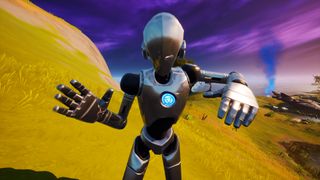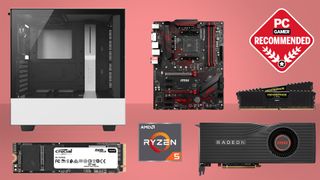Machine translation startup predicts humanity's impending obsolescence
The rate at which machine translation improves is used to predict when the technological singularity will happen.

It's clear that artificial intelligence is developing at an incredible rate. As we speak, algorithms across the globe are writing code to better themselves. And though we marvel at the rate of machine learning innovation today, a technological singularity may be closer than we ever anticipated.
That's according to AI translation startup, Translated, which has been studying how artificial intelligence approaches language models, in order to predict how fast we're hurtling toward a tech singularity (Translated, via Popular Mechanics).
So we're all on the same page, a technological singularity describes the moment after which technology will begin to replicate itself uncontrollably. It's the point at which sci-fi writers and scientists alike conclude that the human race will become essentially obsolete. In the same way a black hole's event horizon obscures a singularity in physics, it's been notoriously difficult to predict when and where the exact technological singularity might occur, or even what it could look like.
Watching AI evolve over the past year has been a rollercoaster, with a big fear being worker displacement across countless industries. When it comes to translation, the challenge is immense even for the best machine learning algorithms around.
We are approaching singularity in AI.
Translated CEO Marco Trombetti
Having recognised that fact, Translated set about tracking and measuring the rate at which their translation algorithm's Time to Edit metric (TTE) has improved over an eight year period. TTE is essentially the time it takes for a human editor to fix the AI's translations. Comparing the TTE of its algorithm to that of human translations, the company noticed that the gap is slowly but surely closing.
With that trend in mind, the company concludes that since its AI is likely to match the level of a human translator within a decade, and the technological singularity is likely to follow.

Best CPU for gaming: The top chips from Intel and AMD
Best gaming motherboard: The right boards
Best graphics card: Your perfect pixel-pusher awaits
Best SSD for gaming: Get into the game ahead of the rest
"All of us understand that we are approaching singularity in AI", says Translated CEO Marco Trombetti. "For the first time, we have been able to quantify the speed at which we are progressing toward it."
PC Gamer Newsletter
Sign up to get the best content of the week, and great gaming deals, as picked by the editors.
While its true that modern tech is treading some serious Torment Nexus territory, there are thousands of facets to a technological singularity that must be considered. As such, it's hard to say whether improvements in language models can predict a move past the AI event horizon.
It's another matter entirely whether the ability to understand human language is an indicator of intelligence—I know plenty of people who seem to understand language, but are otherwise devoid of any signs of intelligence.

Screw sports, Katie would rather watch Intel, AMD and Nvidia go at it. Having been obsessed with computers and graphics for three long decades, she took Game Art and Design up to Masters level at uni, and has been demystifying tech and science—rather sarcastically—for three years since. She can be found admiring AI advancements, scrambling for scintillating Raspberry Pi projects, preaching cybersecurity awareness, sighing over semiconductors, and gawping at the latest GPU upgrades. She's been heading the PCG Steam Deck content hike, while waiting patiently for her chance to upload her consciousness into the cloud.
Most Popular








